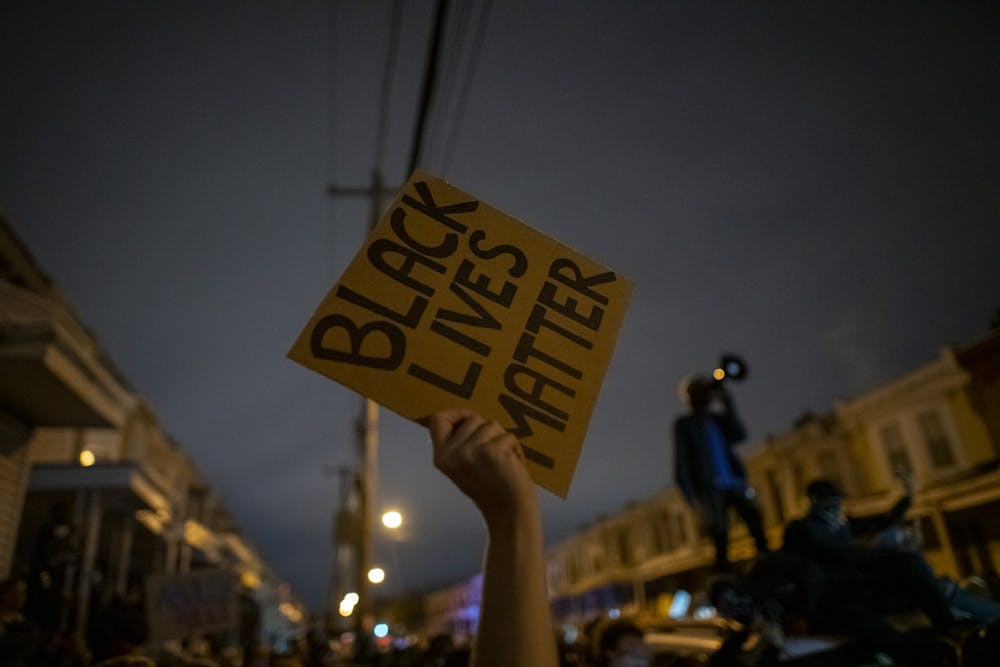“Work” is one short word that bears the burden of many different facets of life, most recently referring to the work of activists.
The first week of January, I was offered a character role in a play being read for consideration by the regional Kennedy Center American College Theatre Festival. The play, “Outraged,” was written by IU MFA Playwriting Candidate Jayne Deely.
The play centers around the concept of moral outrage and how it plays into activism, especially for white or white-passing people. One of the ideas presented by the characters in the play is the idea of outrage as an outward presentation of inward guilt.
According to recent research by Lucas A. Keefer, a psychology professor at the University of Southern Mississippi, and Zachary Rothschild, a psychology professor at Bowdoin College, the conventional understanding of moral outrage – selfless concern for the well-being of a third-party group – should be reexamined.
The hypothesis that led them to conduct five separate studies reinvented moral outrage as a response to a feeling of complicity. They published the results of the studies in the psychology journal “Motivation and Emotion” in early 2017. The paper was titled “A cleansing fire: Moral outrage alleviates guilt and buffers threats to one’s moral identity.”
Deely notes as human beings we tend toward defensiveness especially when told we’re in the wrong because our self-worth is often tied to the idea of being right or good.
“I think if we can normalize being corrected and making adjustments, and accepting that none of us have escaped systemic racism, and separate this process from our worth as humans, we might see real change, but the second people are in defensive mode they are no longer listening,” Deely said.
The best part about writing “Outraged,” Deely said, was taking all the questions they ask themself on a daily basis and putting them into a play to pose them to audiences. As a result, there were conversations around outrage, activism and the intersections that lay between them.
Deely began writing this play in early 2020, before many of the events that spurred a renewed interest in activism from those outside the affected communities. In last year’s case, namely Black people with the Black Lives Matter movement.
I was asked to play Toni — a shy, 19-year-old Black college sophomore. Throughout the play, Toni discusses moral outrage, her class’s semester topic, with the associate instructor Paul, a white man, and Shea, her classmate, a white woman in her senior year.
Shea is an outspoken, self-proclaimed feminist, but one who is perhaps more out of touch than she is aware of. Though she believes her outrage to be selfless and her activism pure, she is not prepared to put in the work to make social change.
When I spoke with Deely, they said they were inspired to write this piece because of what was happening at the time in the IU theatre department.
“I was looking at fairly easy opportunities to change the climate of the department that were being missed and how it seemed to me that the culprit was often not a lack of understanding of the problem or an active desire to not change, but more the result of making the easier choice,” they said.
As a Puerto Rican, a queer person and someone who has worked in sexual violence prevention, they are familiar with the concept of de-centering self and genuinely putting in the effort to make changes where they see them.
Deely’s work often presents itself in theatre.
“It’s my belief that as artists our power lies in using our art to respond to the injustices around us, Deely said. I believe theatre can create change, so to me it makes the most sense to use the thing I’ve devoted my life to as the tool to respond.”
Though Deely is a proud Puerto Rican, they recognize the privilege they have by being fair-skinned—a white-adjacent privilege that is not afforded to many members of their family.
Part of Deely’s work has been adjusting to and recognizing the privilege they have and exploring when it is appropriate to name their Latinx heritage, while not using it to distance themself from the privilege of having light skin.
As a light-skinned Black woman, I have come up against my fair share of privilege. I am very clearly Black but have a different kind of privilege that is born of colorism, and by proxy, racism. It does not always seem like much, but it does exist.
This kind of awareness is what brings us closer to eliminating systemic racism from our country and our world. It is not enough for BIPOC people to be the only ones aware of systemic racism. While we may benefit from it in small ways, white people must become aware of systemic racism as well.
In order to properly do the “work,” white people, you must de-center yourselves. You must recognize the fight against systemic racism is not an attack on you. These systems were put in place before you were even considered. You benefit from them while others are held back by them.
Understand and accept that, and work to level the playing field.
It is okay to not know where to start. The most important thing is to start, and to continue even when it gets hard, is inconvenient or causes you to sacrifice things.
In “Outraged,” Deely wrestles with these questions themself and leaves the conversation to continue with their audience.
“Ultimately, I’m very aware that this is a play with a message for white people,” they said. “‘You don’t have the answers, I swear you don’t.’”






